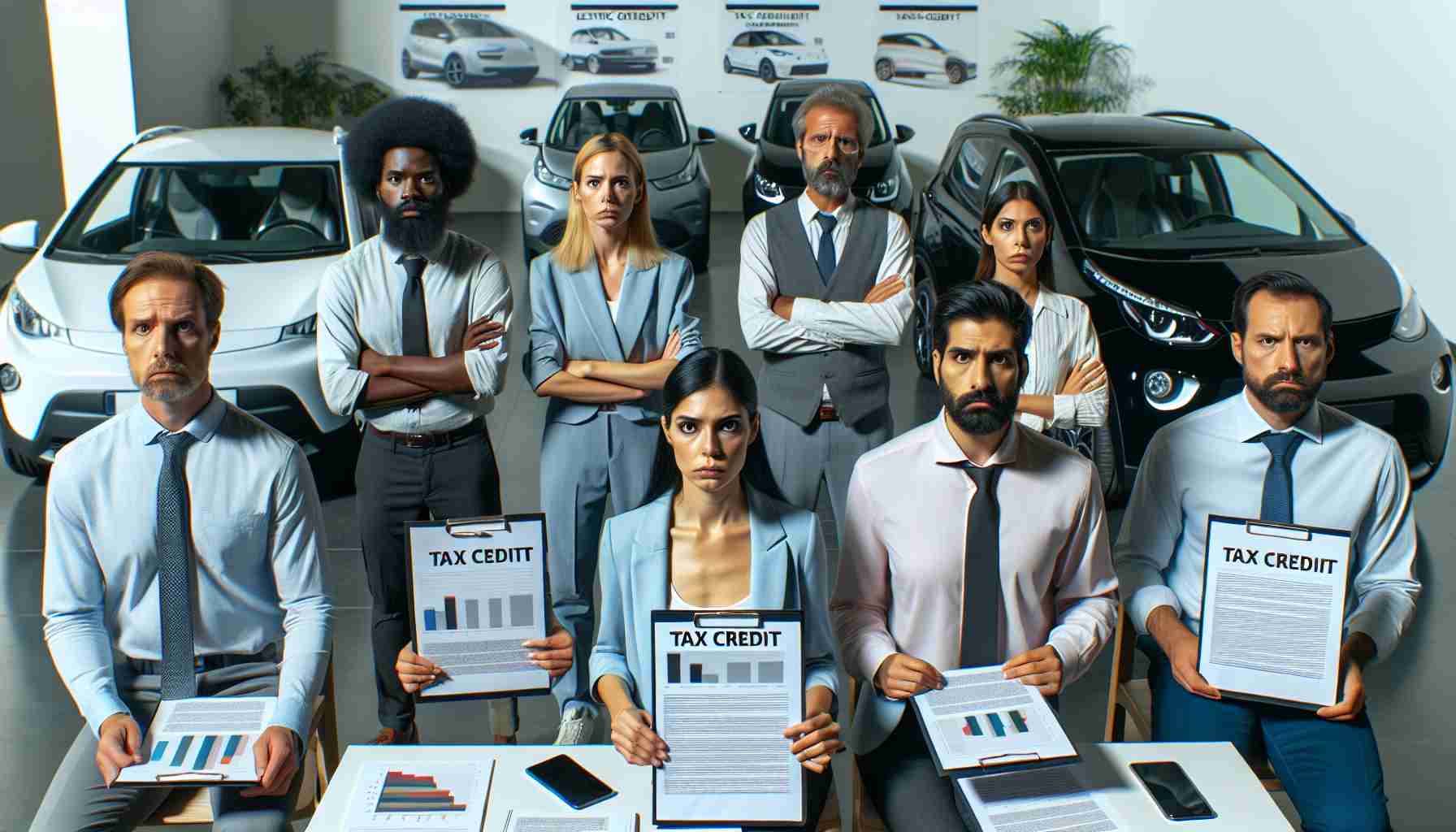The introduction of the new electric vehicle (EV) tax credit has created some hurdles for dealerships, raising questions about their ability to effectively process time-of-sale tax credits on both new and used vehicles. While some dealers have seamlessly adapted to the new process, others are encountering difficulties that prevent them from applying the credits at the point of sale. This issue has led to frustration among dealerships and a potential loss of customers to competitors who can properly handle the tax credits.
Dealers had the option to register for the IRS Energy Credits Online portal, which allows them to claim or transfer EV tax credits for customers. Prompt reimbursement is essential for dealers to ensure a smooth and efficient sales process. However, some dealerships have been struggling with technical issues that have persisted for months, hindering their ability to apply the tax credits. The frustration is palpable, with dealers feeling like they are “dead in the water” and unable to compete effectively.
Despite these challenges, the EV tax credit program has proven effective, with the U.S. government issuing $135 million in advanced credits to dealers in just 36 days in 2024. However, as this is a relatively new process, it is not surprising that there are teething problems. Both dealers and consumers will likely encounter difficulties until the system is streamlined and well-established.
Furthermore, the complexity of the program extends beyond the redemption of advance credits. Existing regulations regarding eligible vehicles have created confusion among consumers. In particular, battery manufacturers like CATL are restructuring their operations to meet the requirements and access the tax credit benefits. The Inflation Reduction Act stipulates that batteries manufactured or assembled by Foreign Entities of Concern (FEOC) are ineligible for the tax credit. In response, CATL, a major Chinese battery manufacturer, is making changes to avoid being classified as an FEOC.
CATL’s restructuring is crucial because it is a significant supplier of EV batteries to several prominent automakers. By ensuring compliance with the regulations, CATL can maintain its position and continue supplying batteries to brands such as BMW, Honda, Hyundai, Toyota, Volkswagen, and Tesla. This strategic move will enable CATL to benefit from the tax credit indirectly through its partnerships with OEMs.
As EVs continue to gain popularity, addressing the challenges faced by dealerships and implementing clearer regulations will be essential to support the growth of the industry.
FAQ:
1. What is the new electric vehicle (EV) tax credit?
– The new EV tax credit is a government incentive that provides tax credits to customers who purchase electric vehicles.
2. Why are dealerships having difficulties with the tax credit?
– Some dealerships are encountering technical issues that prevent them from applying the tax credits at the point of sale, leading to frustration among dealers and potential loss of customers.
3. How can dealers claim or transfer EV tax credits?
– Dealers have the option to register for the IRS Energy Credits Online portal, which allows them to claim or transfer EV tax credits for customers.
4. How much in advanced credits did the U.S. government issue to dealers in 2024?
– The U.S. government issued $135 million in advanced credits to dealers in just 36 days in 2024.
5. What regulations have created confusion among consumers regarding eligible vehicles?
– Existing regulations state that batteries manufactured or assembled by Foreign Entities of Concern (FEOC) are ineligible for the tax credit, creating confusion among consumers.
6. How is major Chinese battery manufacturer CATL responding to the regulations?
– CATL is restructuring its operations to avoid being classified as an FEOC to continue supplying batteries to automakers and benefit from the tax credit indirectly through its partnerships with OEMs.
Definitions:
– EV: Electric Vehicle, a vehicle that runs on electricity instead of traditional fuels like gasoline.
– Tax credit: A government incentive that reduces the amount of tax owed by an individual or business.
– OEM: Original Equipment Manufacturer, a company that produces parts or equipment that are used in the production of a final product by another company.
Suggested related links:
– IRS Electric Vehicle Tax Credit FAQ
– Electric Vehicle Tax Credits and State Licensing Fees – U.S. Department of Energy
The source of the article is from the blog macholevante.com
